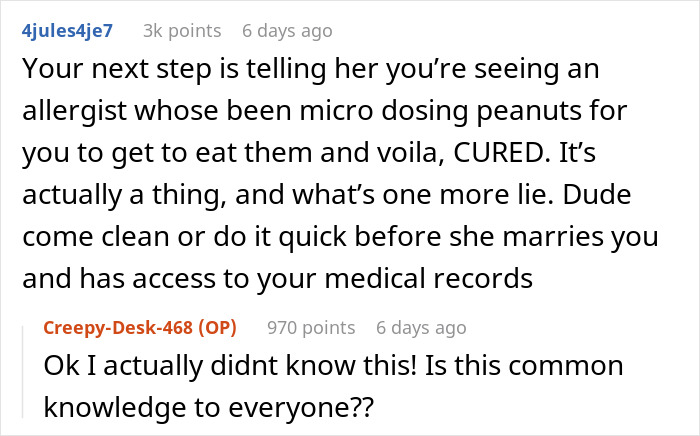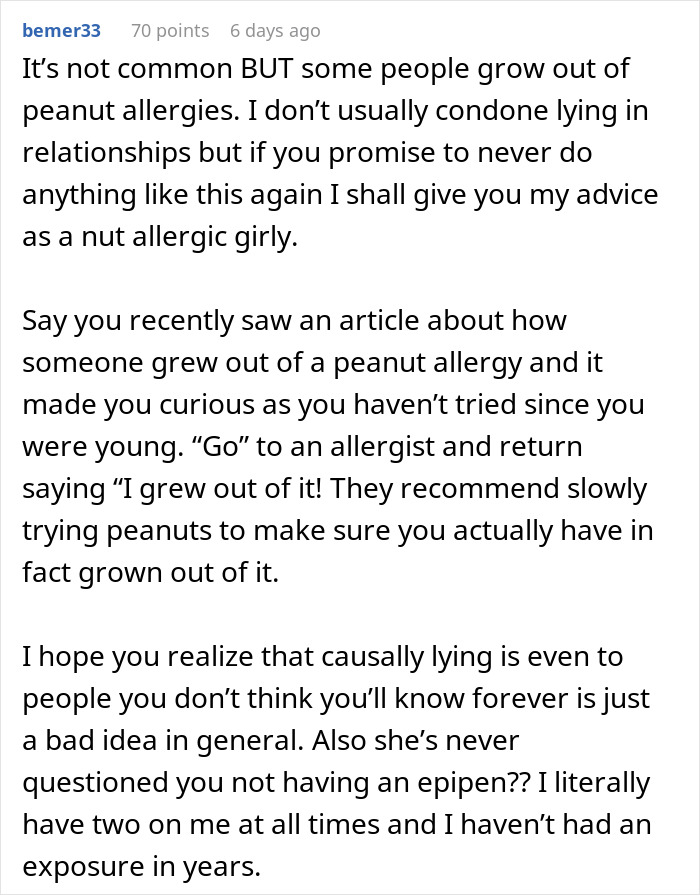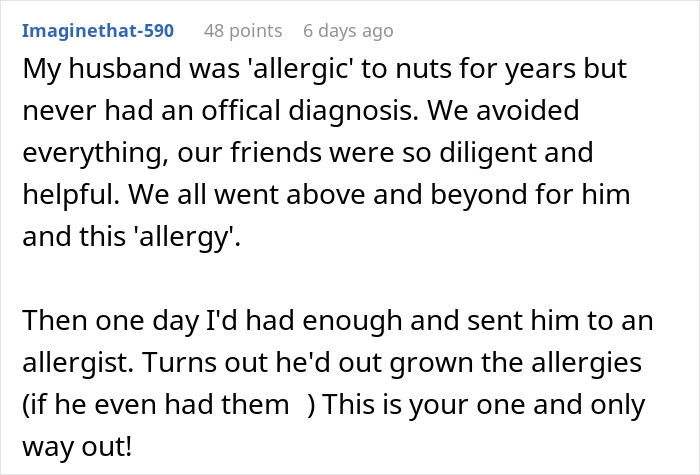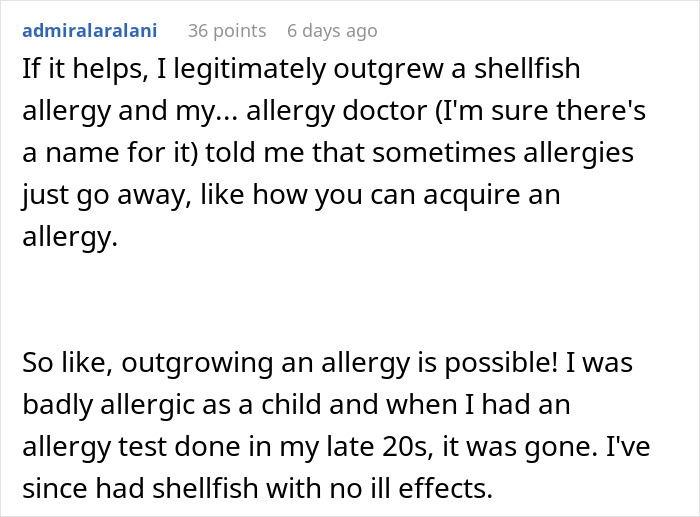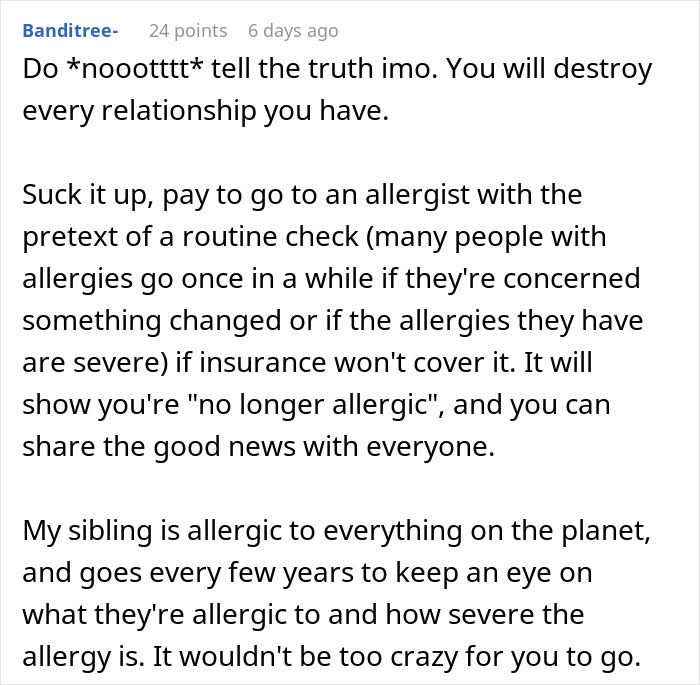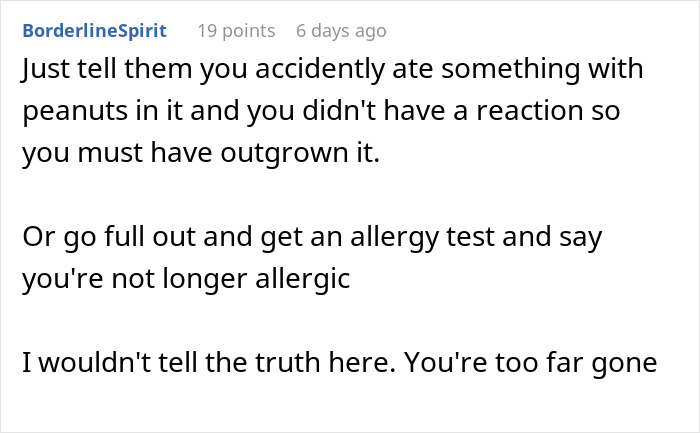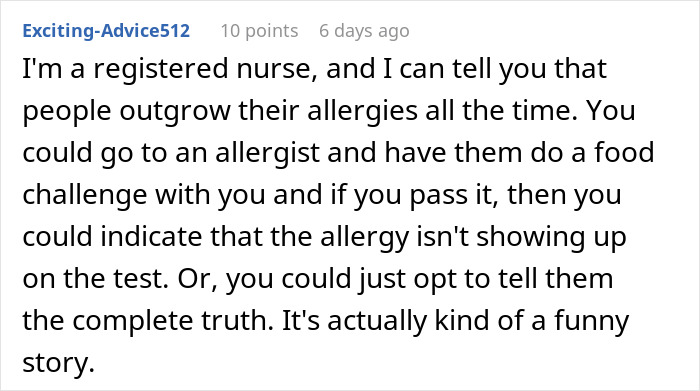Sometimes one says something on a whim that ends up getting back to them years later. Excuses, fake stories, or just pranks gone too far are all cases where fake stories end up being cemented into reality. The longer someone maintains a lie, the harder it is to break out of it, no matter how “small” the lie actually is.
A man wondered what to do about the peanut allergy he had been faking for years now that he was planning to move in with his girlfriend. We reached out to him via private message and will update the article when he gets back to us.
Little lies can escalate quickly if you don’t have an exit strategy

Image credits: katemangostar/ freepik (not the actual photo)
One man maintained that he had a peanut allergy for years until he realized he was in too deep



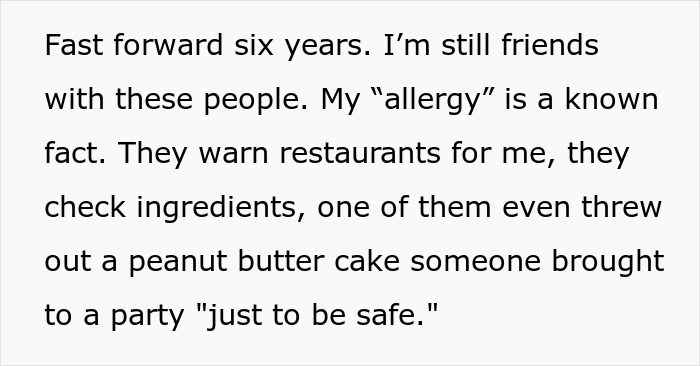



Image credits: freepik (not the actual photo)


Image credits: Creepy-Desk-468
Peanut allergies can sometimes be very dangerous

Image credits: stefamerpik / freepik (not the actual photo)
While this man was making up his allergy, it’s important to note that, like most allergies, a peanut allergy isn’t just a single set of symptoms. For some folks, exposure to peanuts can be deadly, for others the side effects are more mild. This is why, if you know someone is allergic but aren’t sure how badly, it’s best to not take chances. To be fair, most “confessions” tend to be a lot more dramatic, so it’s nice to see one where a person actually plans an exit strategy.
Peanut allergies are one of the most common food allergies and can be quite severe, even life-threatening. For those affected, the immune system mistakenly identifies proteins in peanuts as dangerous, triggering reactions that range from mild symptoms such as hives and itching to severe anaphylactic shock that requires immediate medical attention. Due to this risk, avoiding even trace amounts of peanuts and peanut-containing products is crucial. Importantly, this even means breathing in fragments of peanuts in an environment where they’ve been for a while.
The prevalence of peanut allergies has increased over recent decades, prompting extensive research into possible causes, such as environmental factors, dietary patterns, and genetic predispositions. Some studies suggest that early exposure to peanuts might help reduce the likelihood of developing an allergy, though individual responses vary widely. This area remains a topic of ongoing research and debate among health professionals. So if you were planning a similar strategy of lying about this allergy, chances are it would become more and more believable.
There are some ways a person can “treat” these allergies

Image credits: gpointstudio / freepik (not the actual photo)
For people living with peanut allergies, preparedness is essential. Carrying emergency medication like epinephrine auto-injectors (EpiPens) and having a clear action plan can be life-saving during accidental exposures. Increased awareness in schools, restaurants, and public spaces also plays an important role in creating safe environments for those with this condition.
While there’s currently no immediate cure for peanut allergies, ongoing research and improved management strategies offer hope. With vigilant care and continued advancements in treatment, people with peanut allergies can lead safe and fulfilling lives despite the challenges posed by this condition. As it turns out, scientists have actually been approaching this issue.
However, as some commenters noted, there might be ways to steadily “improve” one’s immune response to peanuts. Immunotherapy involves micro doses of the allergen, in this case peanuts, to help the person’s immune system possibly stop seeing it as a threat. These days, it’s even possible to get antibody injections specifically for peanut allergies. This is all to say that there are a handful of “plausible” ways a person might be cured of this sort of allergy.
People were amused and gave some suggestions
